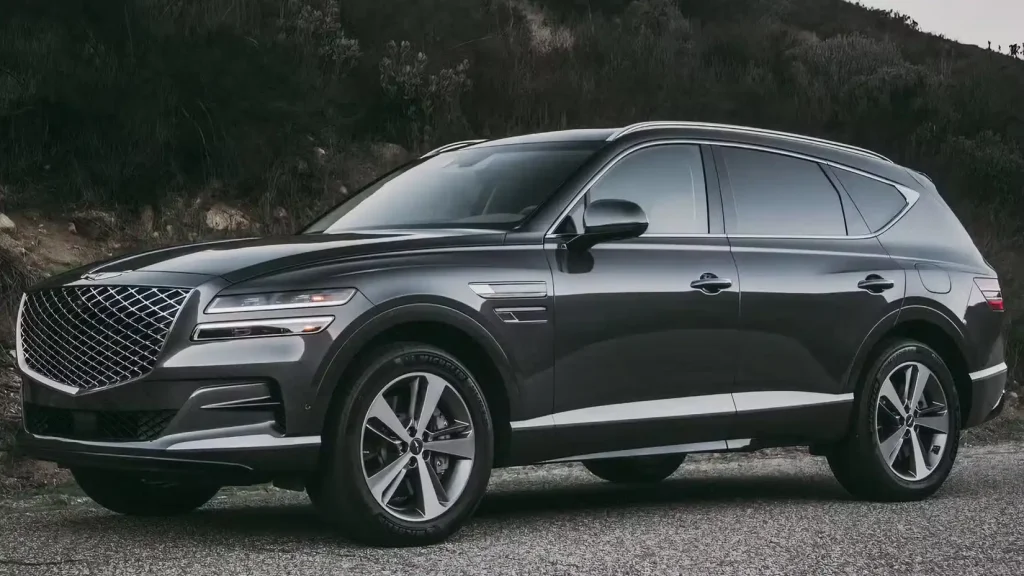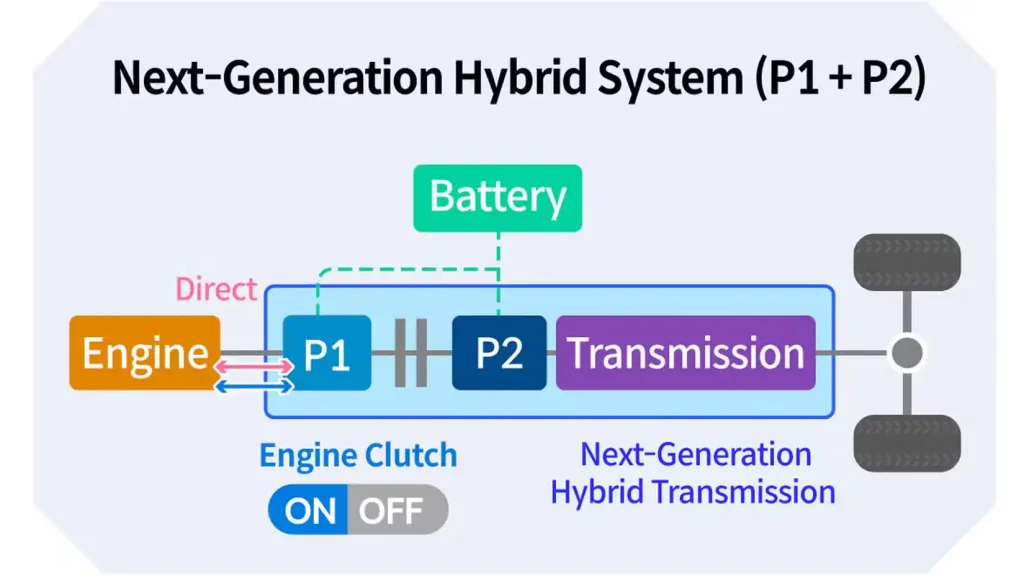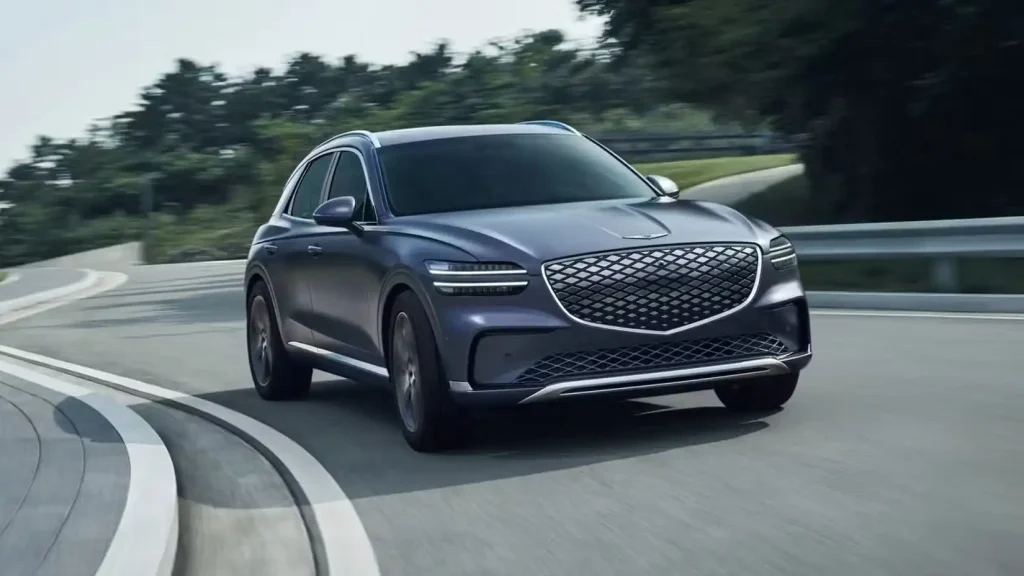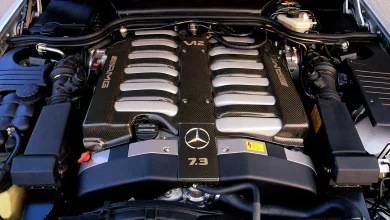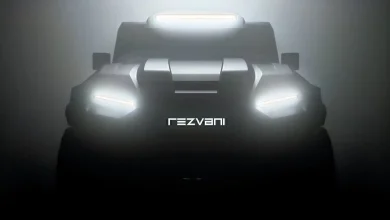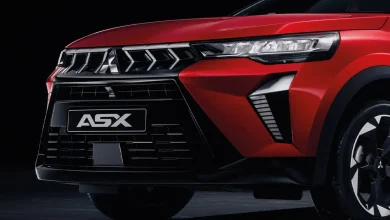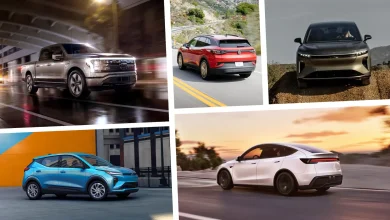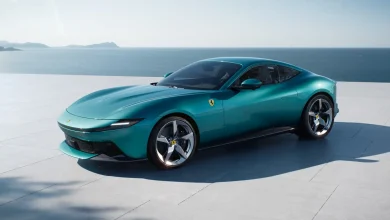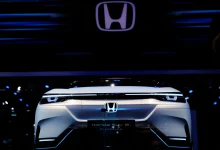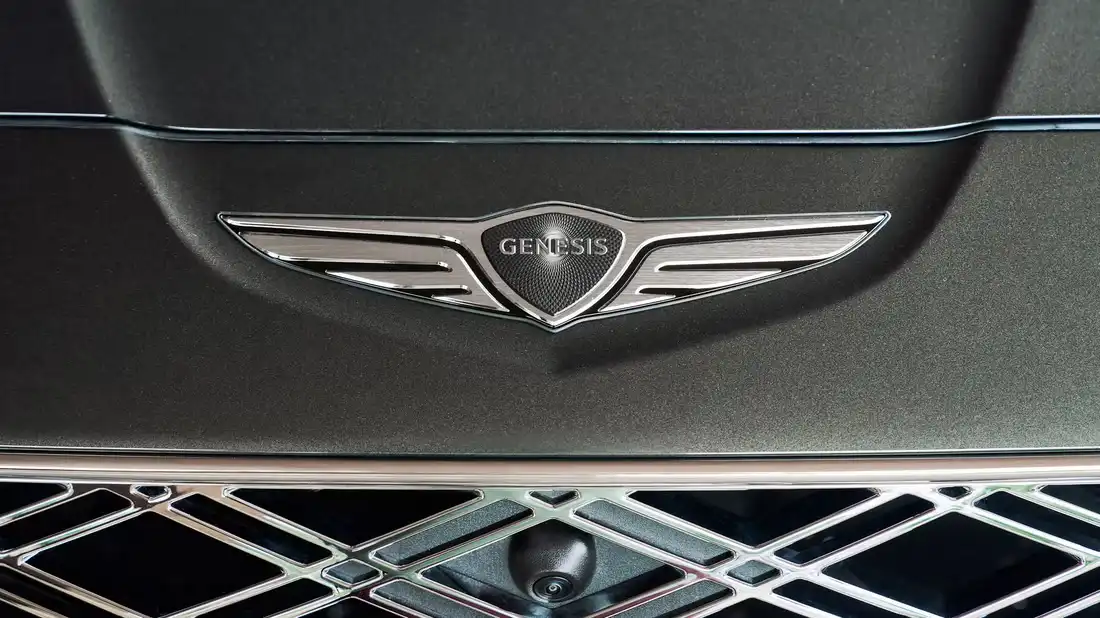
Not long ago, Genesis pledged to offer a fully electric lineup by the decade’s end. However, changing market conditions led the Korean luxury brand to rethink that approach last year. Rather than focusing solely on EVs, Genesis has pivoted to include hybrids alongside electric models—especially in markets like the U.S., where EV adoption remains slower. Recently, the brand’s first hybrid has been spotted undergoing testing.
Enthusiast site TheKoreanCarBlog shared photos—originally posted on the Instagram account ShortsCar—revealing a GV80 prototype outfitted with roughly installed bright orange electrical cables. These cables, a standard industry warning for high-voltage wiring, run underneath the vehicle and extend into the cabin. Such an exposed arrangement is typical for prototypes and is never seen in production vehicles.
GV80 to Lead Genesis Hybrid Lineup
The GV80 midsize SUV prototype aligns with a June report indicating that both the GV80 and its sportier GV80 Coupe variant will become Genesis first hybrid models. The hybrids are expected to debut around September 2026, featuring traditional hybrid powertrains that combine an internal combustion engine with an electric motor working in parallel to drive the wheels.
According to TheKoreanCarBlog, the GV80 hybrids will utilize a modified version of Hyundai’s P1+P2 hybrid system, soon to debut in the Palisade midsize SUV. This setup features two electric motors: the first acts as a starter motor and provides engine assist under heavy loads (similar to a mild-hybrid, known as P1), while the second (P2) directly powers the wheels and recovers energy during braking.
Uniquely for Genesis models, the internal combustion engine is expected to power the rear wheels alongside the P1 motor, while the P2 motor will drive the front wheels. This setup creates a hybrid all-wheel-drive system.
The internal combustion engine is likely a turbocharged 2.5-liter four-cylinder—the same engine Hyundai has confirmed for its upcoming Palisade hybrid. In that setup, the combined peak output exceeds 300 horsepower, delivering up to 45% better fuel efficiency compared to a similar non-hybrid powertrain. While current GV80 models with the 2.5-liter turbo produce 300 hp, the new hybrid system is expected to boost that output to approximately 360 hp.
EREVs to Arrive Later
Genesis also intends to launch series plug-in hybrids, commonly known as extended-range electric vehicles (EREVs). In these models, the internal combustion engine functions solely as a generator, extending the range of an otherwise fully electric vehicle. A major advantage of EREVs is their sizable battery, which enables short-distance driving on electric power alone. Additionally, features typical of EVs—such as bidirectional charging—can be supported.
In April, Genesis Head of Product and Safety Officer Marc Choi told HARJA that the brand will focus more on EREV technology rather than traditional plug-in hybrids. He also explained that integrating hybrid systems is challenging for Genesis because it can’t simply use the setups from sister brands like Hyundai or Kia, given Genesis’s distinctive rear-wheel-drive platforms.
Last year, Hyundai Motor Group announced plans to manufacture its EREVs in both North America and China. In North America, the initial series plug-in hybrids will be “D-class SUVs,” a segment that includes models like the Hyundai Santa Fe and Genesis GV70. A GV70 equipped with EREV technology is anticipated to debut by early 2027.




